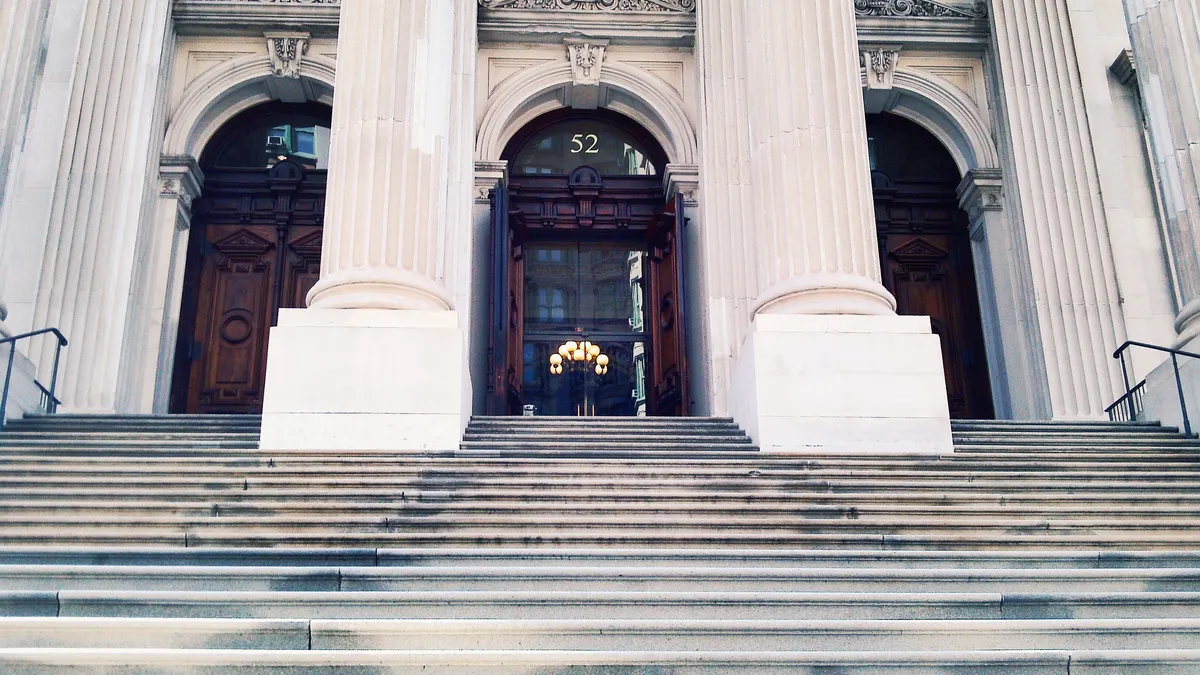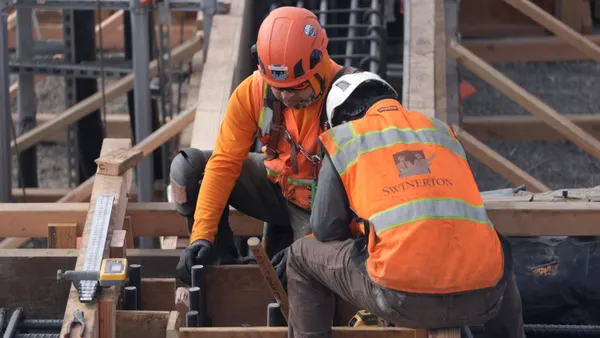Dive Brief:
- New York City’s Department of Education may have subjected a White former educator to a hostile work environment when it required her to attend mandatory implicit bias training in which co-workers made comments that a rational jury could find to be racist, the 2nd U.S. Circuit Court of Appeals held Thursday.
- The plaintiff in Chislett v. N.Y.C. Dep’t of Educ. alleged race discrimination manifested in the form of a demotion, hostile work environment and constructive discharge. A district court granted summary judgment to the city on all three counts, but the 2nd Circuit overturned with respect to the hostile work environment claim because a genuine dispute of material fact existed, it said.
- In its analysis, the 2nd Circuit said that training instructors repeatedly said that “values of [w]hite culture are supremacist” as well as similar comments, and that employees were once physically segregated and singled out by staff. The court added that such comments also were made outside of training and that a jury could therefore conclude that a consistent pattern of harassment took place.
Dive Insight:
Amid a broader backlash against diversity, equity and inclusion programs, federal courts have increasingly been asked to weigh in on the legality of DEI training on subjects such as implicit bias. That litigation is itself part of a growing trend of so-called ‘reverse discrimination’ lawsuits brought by majority-group plaintiffs.
In Chislett, the 2nd Circuit held that while implicit bias training may not be discriminatory per se, the alleged conduct included negative generalizations and stereotypes of White people. Conversations outside of the training also “took on a racialized tone,” the court said, with the plaintiff claiming that she was called a racist and labeled “white and fragile” after disciplining or managing subordinates.
“What matters here is the way the trainings were conducted,” the 2nd Circuit said. “When employment trainings discuss any race ‘with a constant drumbeat of essentialist, deterministic, and negative language [about a particular race], they risk liability under federal law.’”
The court also faulted the plaintiff’s supervisors for not intervening when she complained about the alleged conduct. “Her supervisors routinely dismissed the harassment and in one instance, prevented her from having a private meeting regarding her concerns,” it wrote.
Employers have already put their DEI training under the microscope amid backlash from regulators. Attorneys who previously spoke to HR Dive noted that training which makes a specific race or gender feel impugned, less than or guilty may violate employment laws like Title VII of the 1964 Civil Rights Act.
Separately, the U.S. Department of Justice issued a memo in July stating that DEI training which segregates employees into race-based groups or stereotypes individuals based on protected characteristics is unlawful.
The plaintiff in Chislett is one of several White employees of New York City’s Department of Education to sue the agency for alleged discrimination that occurred during the tenure of former Chancellor Richard Carranza, according to the New York Post. Following one such lawsuit, city lawmakers wrote a 2019 letter to then-Mayor Bill de Blasio criticizing Carranza for divisive comments and practices. Carranza stepped down from his post in 2021, Chalkbeat reported.
Other plaintiffs have filed lawsuits challenging their employers’ DEI training or messaging. A Pennsylvania federal judge dismissed in March one White former professor’s lawsuit claiming that his employer’s communications and invitations to participate in conversations around antiracism created a hostile work environment. The case has been appealed to the 3rd Circuit and remains in litigation.
In another example, a Christian former employee of Honeywell alleged in February that he was unlawfully fired for refusing to participate in a mandatory unconscious bias training. That case also remains in litigation.
















